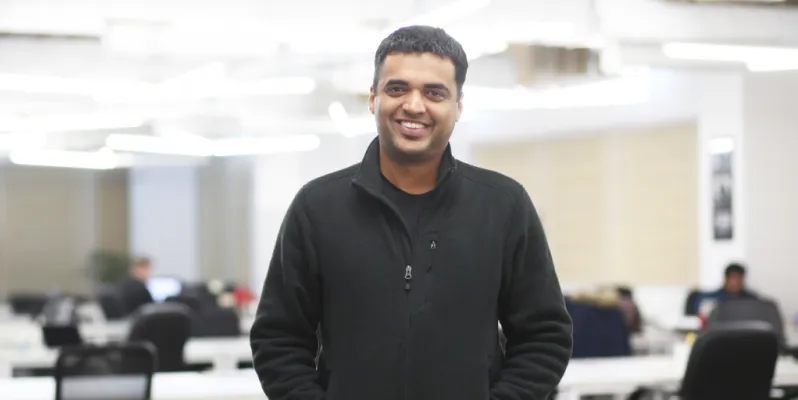HSBC slashes Zomato's billion dollar valuation in half, while Info Edge, Zomato disagree
With $9 billion invested across 1,005 plus deals, 2015 was a 'gold rush' for Indian startups. After many startups lost their way, sense seems to have kicked in and we are now witnessing many market corrections in 2016. HSBC slashed the paper valuation of Zomato to half its value ($500 million), reported TOI. Info Edge, Zomato's largest shareholder and Zomato though disagreed with HSBC's markdown.

Story so far
Zomato, the Indian restaurant search and food delivery service provider, was founded by Deepinder Goyal and Pankaj Chaddah in 2005 and was initially called Foodiebay.com. Since inception Zomato has raised $225 million across multiple rounds, from investors including Temasek, Sequoia and Info Edge.
Apart from India, Zomato has operations in 23 countries including the United States, Britain and Australia. The company entered the US market in early 2015 by acquiring US-based Urbanspoon in an all cash deal. To further sweeten the deal for customers looking for table reservations, it acquired NexTable in April 2015. While 2015 was a good year for Zomato, with international expansions and having raised $60 million funding Temasek and Vy Capital, introducing a whitelabel platform, and also investing in food delivery startups Grab and Pickingo, it did face some turbulence.
After letting go 300 employees, the company had to shut down its cashless business in international markets and change its strategy. Zomato backed Pickingo too faced problems and had to halt its hyperlocal delivery services. In early 2016, Zomato shut down its food ordering service in four cities-Lucknow, Kochi, Indore, and Coimbatore, as the markets were not yet big enough for Zomato to sustain operations. Deepinder Goyal reflected on Zomato’s journey in a blog post and listed down seven learnings from their hits and misses in 2015.
In February 2016, Zomato announced that it had broken even in six markets (including India) and was on track to make a profit by June 2017. Zomato also told Reuters that it had hit operational break even in India, the UAE, Indonesia and three other markets in the Middle East and Southeast Asia, which together accounts for three-fourths of the company's revenue.
It is interesting to note that Zomato in it previous avatar as a pure-play content and advertising platform, had already broken even in India in 2013, before its rapid global expansion. Reuters also noted that Zomato was looking to initiate a $200 million funding round in April 2016 and was in discussions with Chinese internet conglomerates Alibaba Group and Baidu Inc for investments.
HSBC's markdown
According to reports, Zomato had joined the 'Unicorn club' in April 2015, while some investors pegged its valuation to be closer to $800 million. A recent note circulated by the HSBC arm raised grave doubts around Zomato's steep valuation, its international expansion and its overall business model reported TOI.
HSBC Securities and Capital Markets in a report (which is not public), titled 'India Internet - Lot of Growth but Slim Pickings' has valued Zomato at 50% lower to the $1-billion valuation, after a discounted cash flow (DCF) analysis. It stated,
Zomato is present in 23 markets so early on and none is profitable, which implies that to address both the investments in last-mile delivery and losses in international operations, fund-raising will be a continuous phenomenon, suggesting current valuations don't make much sense.
The note by analysts Rajiv Sharma and Darpan Thakkar deep-dives into why the brokerage firm has taken a negative view on Zomato and also on InfoEdge. Restaurants that pay for advertising only account for around 6-8% of Zomato's overall database. The analysts also noted,
Competition will always find it easy to take share via other routes, particularly online last-mile delivery model. We understand that last-mile delivery is not easy but unless Zomato leads in this space it will find it tough to retain market share. Particularly, we have Swiggy in India which is very active in the space and has been getting funding at regular intervals.
Info Edge and Zomato's stance
Info Edge which holds nearly 50% in the Gurgaon-based Zomato disagreed with HSBC's markdown saying that the restaurant listings company will become profitable very soon. Sanjeev Bikhchandani, Founder and Executive Vice-Chairman of Info Edge told Mint, “We respectfully disagree with several of the points raised by the HSBC report. We value our investments at cost and Info Edge has not marked down Zomato at all.”
Deepinder Goyal responded to HSBC's markdown in a blog on Zomato titled, 'Unicorn or not?'. The post elaborates in detail about Zomato's stance on the food ordering business, US operations, ad sales and overall profitability. In it Deepinder claims that Zomato's revenue has doubled over the past nine months and their costs have been rationalised. He states,
We do not need to raise another round of funding to sustain the business, or steer it to profitability. The advertising model has huge headroom for growth. More than 95% of the restaurants in our core markets have yet to be monetised. Mobile, which is over 50% of our traffic, is yet to be monetised seriously.
Regarding Zomato's valuation Deepinder added that nobody who knew their business has marked them down. He said, "In fact, our existing investors are bullish about us, and are willing to back us further, if needed. And they have categorically said that our valuations are justified. Especially because we are more than doubling year on year, and the next year looks even more exciting for us. But external perceptions of valuations are determined by the state of the market, and the availability of facts to the person who is analysing these numbers."
Website: Zomato







